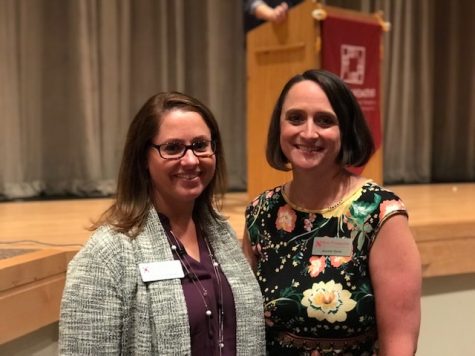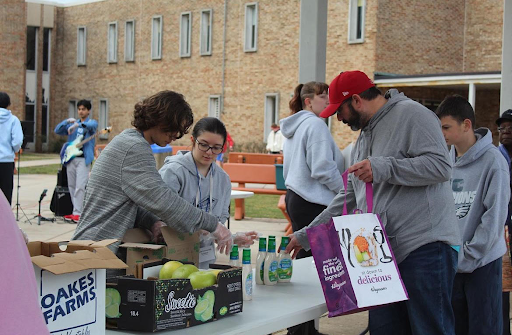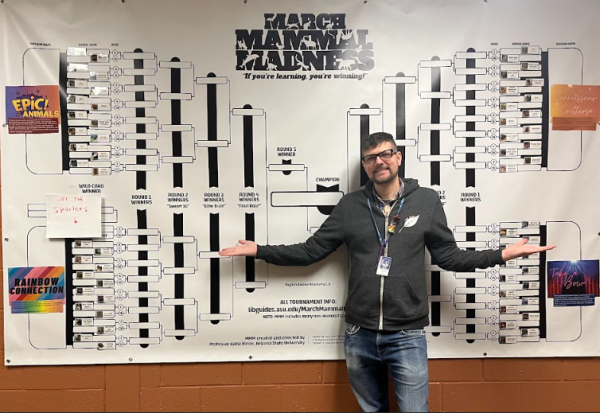“Pick up the Q-tip.” Ryan Leaf addresses Penn Foundation on resilience, recovery, and hope
The organization’s annual fundraiser was a testament to the power of a community as Leaf reflected on his journey from prison to prime time.
PERKASIE – If you want to succeed in life, “pick up the damn Q-tip,” says NFL quarterback-turned-advocate Ryan Leaf.
His unique blend of tough love and compassion was welcome at the Penn Foundation’s annual Autumn Event last Tuesday, a fundraiser that generates awareness for the foundation’s tireless efforts to rehabilitate individuals dealing with drug and alcohol dependency and mental illness.
“Penn Foundation provides mental health and substance abuse treatment services,” explained Jennifer Smith, the Penn Foundation’s Communications Coordinator. “We serve over 19,000 people a year. . . that ranges from traditional counseling programs, where you come and talk to someone one-on-one for any issue you might be dealing with, to residential programs [for] people with more serious mental illnesses. We also have rehabilitation programs for individuals who are looking to go back to work, live independently, [or have] a life goal that they want to work on.”

The Penn Foundation’s Kim Detwiler (left) and Jennifer Smith are committed to the health, happiness, and success of the foundation’s clientele.
In addition to preventative outreach, the Penn Foundation offers a vast array of inpatient and outpatient drug and alcohol treatment programs, including a Mobile Engagement Service responsible for persuading reluctant individuals to obtain treatment (typically with the help of individuals’ families). The foundation, in essence, “wrap[s] around people,” focusing not only on rehabilitation itself but on building a healthy foundation for life afterward, including transportation, housing, and career options, relayed Smith.
However, she emphasized that “people have to really want to get help for it to be effective. . . they can come to treatment, they can go through the motions, [but] if they don’t truly want it, there’s nothing we can do.”
Quarterback Ryan Leaf was drafted into the NFL second to only Peyton Manning in 1998, but his football career was cut short as he struggled with substance abuse, narcissism, and a generalized lack of discipline spurred on by a culture and lifestyle that, in his words, “placed [him] on a pedestal.”
“[If] you play well on a Friday night. . . a lot of times your behavior kind of gets overlooked. And so that develops [a] God complex,” he explained. “No one counteracts that to you unless you get slapped in the face with it. And so it just took failing on the highest level, and the spiral downhill, to finally humble me in a way where I could fully understand that I’m exactly like everybody else – just a flawed human being, trying to be better,” Leaf reflected.
After serving a stint in prison, he worked to rid himself of drugs and began to speak openly about his experiences, in the process becoming an advocate for those suffering from substance abuse and mental illness. Leaf’s journey is perhaps best exemplified in this anecdote from his nightly routine:
“I use a Q-tip [every day]. . . and then I throw it in the trash can. [Sometimes] it goes in, maybe a couple times it hits the edge and falls off to the side. I think my whole life, I just turned my eyes back to the mirror and assumed somebody was picking up after me. That’s the entitlement part, right? And this is just a small, little choice. One day, I threw it and missed. I stopped myself, and I went over and I picked it up. I threw it in the trash can. . . I thought about it in the simplest terms,” said Leaf. He went on to question how his life would have unfolded if, as a teenager and young adult, he had approached every choice with purpose and clarity – if he had picked up the metaphorical Q-tip.

Ryan Leaf addresses the Penn Foundation. He currently works as an analyst for ESPN and travels around the country, telling his story of recovery and resilience.
“In a world that takes so much control away from you, you actually control [your] decisions,” Leaf concluded.
He credits commitment to personal responsibility, service to others, and a strong support system for reversing the trajectory of his life, which currently includes a position as a college sports analyst for ESPN, a two-year-old son named McGyver, and a platform through which he can communicate with others facing the circumstances from which he has emerged. The best way to decrease stigma and get people talking about mental health and substance abuse issues, Leaf says, is simple.
“This. Just bare-bones, show up. Be transparent, be vulnerable. Tell the people your real story. It doesn’t cost me anything to be honest,” he stressed. “It doesn’t cost me anything to tell you the unvarnished truth of what my life was like – and therefore connecting and relating with the audience better than I ever could have as a football player,” he finished.
Smith concurred, adding, “the more you talk about it, the more it helps with the stigma. So we try to encourage our clients to share their stories, to get the word out [that] people with mental illness can live a satisfying life in the community. They can manage, and they can recover. . . there is hope.”











